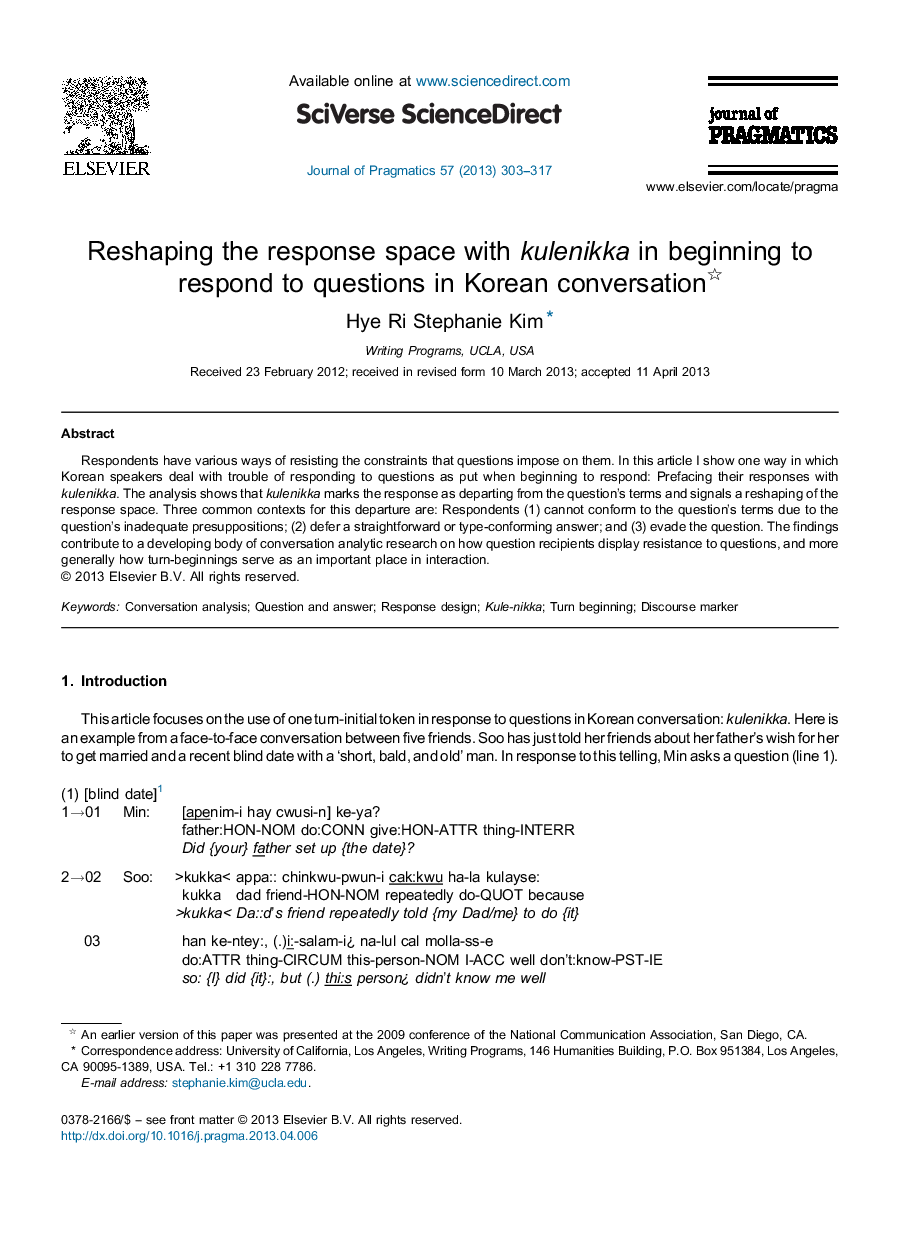| Article ID | Journal | Published Year | Pages | File Type |
|---|---|---|---|---|
| 932847 | Journal of Pragmatics | 2013 | 15 Pages |
Respondents have various ways of resisting the constraints that questions impose on them. In this article I show one way in which Korean speakers deal with trouble of responding to questions as put when beginning to respond: Prefacing their responses with kulenikka. The analysis shows that kulenikka marks the response as departing from the question's terms and signals a reshaping of the response space. Three common contexts for this departure are: Respondents (1) cannot conform to the question's terms due to the question's inadequate presuppositions; (2) defer a straightforward or type-conforming answer; and (3) evade the question. The findings contribute to a developing body of conversation analytic research on how question recipients display resistance to questions, and more generally how turn-beginnings serve as an important place in interaction.
